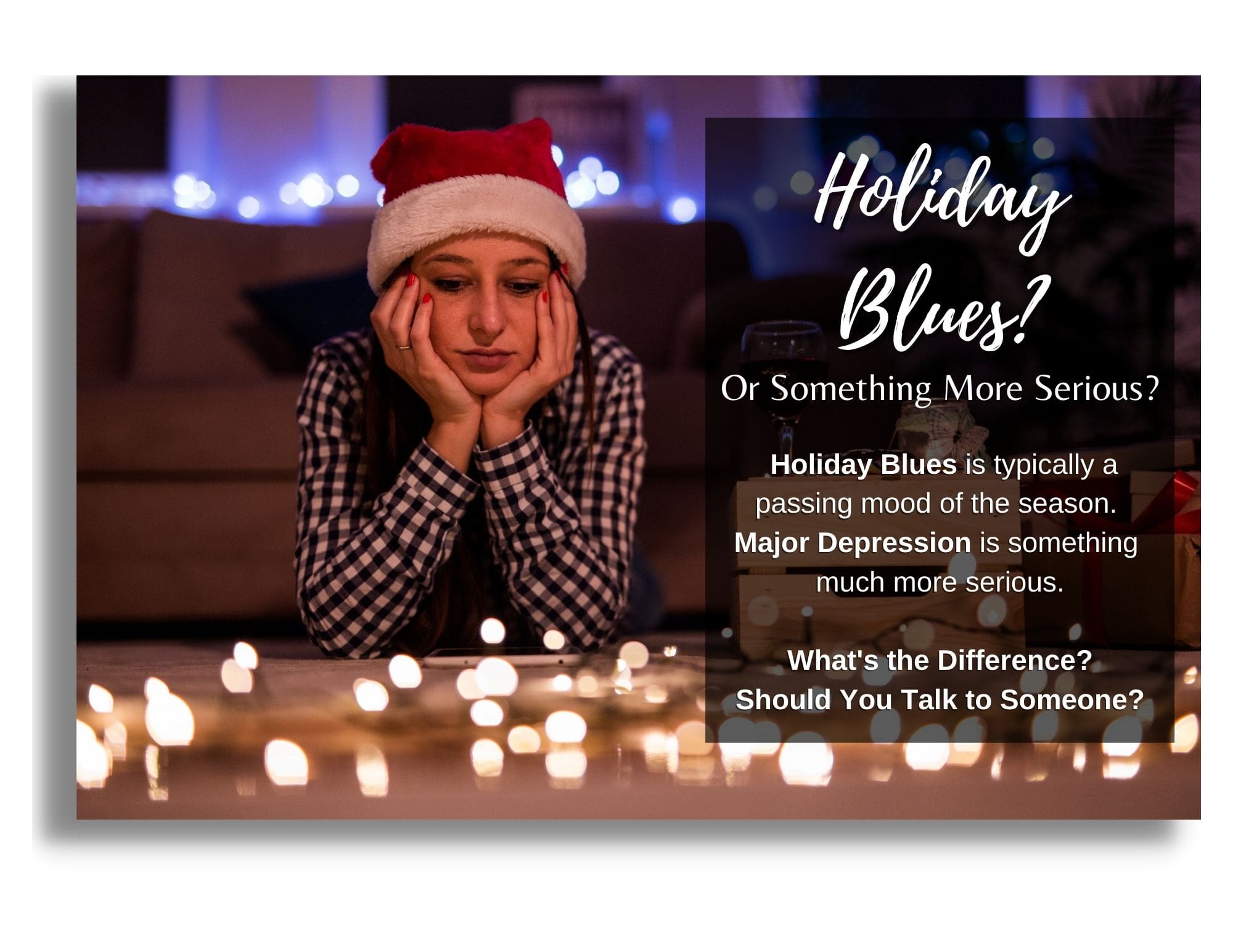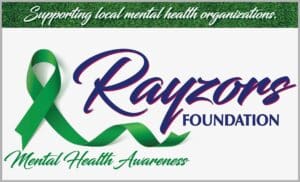 The holiday season is supposed to be a time full of joy, cheer, parties, and family gatherings. However, for many people, it can be a time of self-evaluation, loneliness, reflection, and anxiety about an uncertain future. Feelings of sadness that last throughout the holiday season, especially during the months of November and December, are often referred to as the “holiday blues” or “holiday depression”.
The holiday season is supposed to be a time full of joy, cheer, parties, and family gatherings. However, for many people, it can be a time of self-evaluation, loneliness, reflection, and anxiety about an uncertain future. Feelings of sadness that last throughout the holiday season, especially during the months of November and December, are often referred to as the “holiday blues” or “holiday depression”.
Holiday blues is typically a passing mood of the season and even people who love the holidays can experience the blues during this busy season. A time of high emotion and demands, the holidays can leave many people feeling stressed and exhausted at this time of year.
Here are a few suggestions on how to cope with the stresses of the holiday season:
- Keep expectations for the holiday season manageable. Try to set realistic goals for yourself. Pace yourself. Organize your time. Make a list and prioritize the important activities. Be realistic about what you can and cannot do.
- Look toward the future. Life brings changes. Each season is different and can be enjoyed in its own way.
- Do something for someone else. Try volunteering some time to help others.
- Enjoy activities that are free, such as driving around to look at holiday decorations or going window shopping without buying.
- Be aware that excessive drinking will only increase your feelings of depression.
- Try something new. Celebrate the holidays in a new way.
- Spend time with supportive and caring people. Reach out and make new friends or contact someone you have not heard from for awhile.
- Save time for yourself! Let others share responsibility of activities.
If the holiday blues turn into something more serious or if your sadness doesn’t ease after the holidays are over, you may be struggling with major depressive disorder, or major depression. Unlike normal emotional experiences of sadness or passing mood states, major depression is persistent and can significantly interfere with an individual’s thoughts, behavior, mood, activity, and even physical health.
Major depression is a serious medical illness that affects approximately 10 million American adults in a given year. When untreated, episodes commonly last anywhere from six months to a year. If left untreated, depression can many times lead to suicide.
What are the symptoms of major depression?
The symptoms of major depression characteristically represent a significant change from how a person functioned before the illness. The symptoms of depression include:
- persistently sad or irritable mood
- pronounced changes in sleep, appetite, and energy
- difficulty thinking, concentrating, and remembering
- physical slowing or agitation
- lack of interest in or pleasure from activities that were once enjoyed
- feelings of guilt, worthlessness, hopelessness, and emptiness
- recurrent thoughts of death or suicide
- persistent physical symptoms that do not respond to treatment, such as headaches, digestive disorders, and chronic pain
Should I Talk to a Doctor?
Dr. Wendy Weinstein, Unit Chief at BryLin Hospital, says that if you’re feeling low, don’t discount the way you’re feeling, especially during the holiday season.
“Although the holiday season is supposed to be a time full of joy, parties, and family gatherings, for many people, it can be a time of loneliness, reflection on past failures, and anxiety about an uncertain future,” says Dr. Weinstein.
“Many people often think that depression will go away by itself. I’ve seen others who might think getting help is a sign of weakness or some sort of moral failing.”
More than just a bout of the blues, major depression isn’t something you can just “snap out” of. Severe depression may require professional intervention and treatment. Depression is the most common mental illness but the good news is that it’s highly treatable. Most people with depression feel better with medication, psychotherapy or a combination of both.
Dr. Weinstein says that it’s important to know, “like diabetes or heart disease, depression is a highly treatable medical condition. Even the most seriously depressed people can be treated successfully, often in a matter of weeks, and they can return to a happy and more fulfilling life.”
Talk to your mental health professional or your primary care physician if you have been feeling anxious or depressed for more than two weeks, or if the holidays are long gone and you’re still feeling stressed, anxious, or depressed.
Call BryLin Hospital at (716) 886-8200 to speak with a licensed mental health professional who can help or visit brylin.com for more information. Remember, you’re not alone. There is always help. There is always hope.
With HELP, There’s HOPE℠



Comments are closed